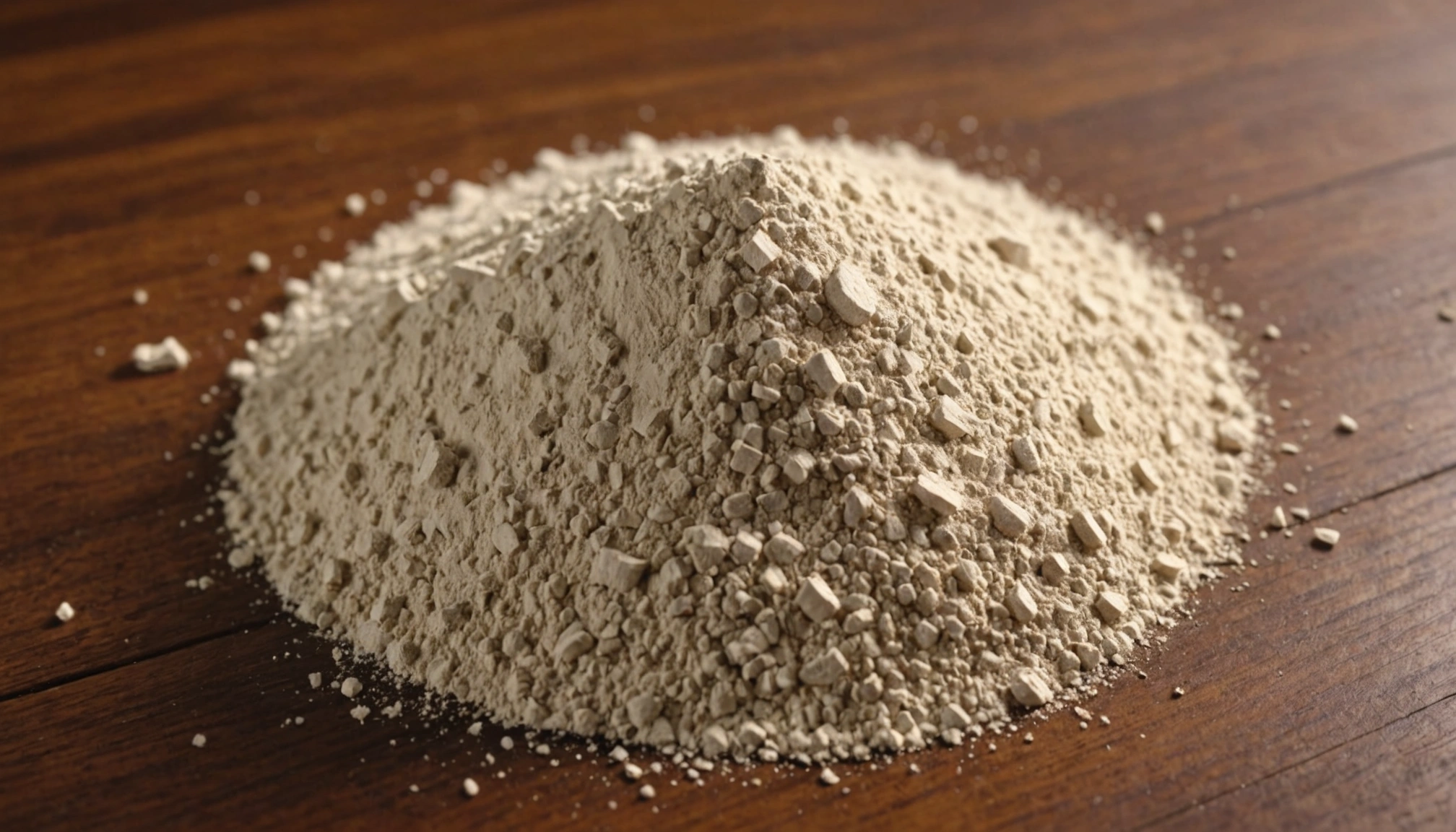The Surprising Truth About Why Food Grade Diatomaceous Earth is Actually Harmful for Chickens (and Humans)
- Donna Weekes
- Jan 28
- 4 min read
Updated: Feb 25

Diatomaceous earth (DE) has gained popularity among chicken keepers as a natural solution for pest control and an alleged health booster. However, the reality is much more complicated. Many owners may not realize that using diatomaceous earth can have negative consequences for their chickens.
The assurance that DE is a "natural" product lulls users into a false sense of safety about its regular use in chickens' environment, but arsenic and mercury are natural too-natural does not mean safe for every purpose.
Understanding Diatomaceous Earth
Diatomaceous earth is a fine powder made from the fossilized remains of microscopic aquatic creatures known as diatoms. Silicon dioxide, the drying element in DE, exists primarily in the amorphous form, but also contains dangerous, crystalline form.
While it is frequently marketed as a remedy for controlling pests like mites and lice, a closer look reveals significant drawbacks to its use in chicken care.
The Dangers of Diatomaceous Earth for Chickens
Respiratory Issues
One of the primary concerns about diatomaceous earth is its effect on chicken respiratory health. When the fine particles are inhaled, they can irritate a chicken’s sensitive lungs, it is known to create scar tissue on the lungs that impairs respiration. potentially leading to chronic respiratory conditions. A study found that exposure to airborne dust can increase respiratory distress in poultry by nearly 30%. This risk is especially significant in confined spaces where dust accumulation is more likely.
While chickens may live a decade or less, breathing crystalline silica regularly is known to cause cancer and chronic pulmonary disease in humans, so even if chicken DE weren't a health hazard to chickens, the daily danger of airborne, respirable DE particles in the extremely dusty environment of a chicken yard everyday ought to scare you.
Yes it's natural, yes it's organic, yes it's cancer-causing when inhaled in sufficient amounts over time.
Skin Irritation
Chickens exposed to diatomaceous earth may suffer from skin irritation. Contact with DE can lead to dry, flaky skin, which not only causes discomfort but also makes chickens more vulnerable to infections. The skin is the largest organ of the chicken's immune system and it's first line of defense against pathogens and disease. Skin's functions are to act as a barrier against pathogens and other potentially harmful substances, retain vital fluids and alert chickens to the proximity of potential threats with its network of highly sensitive nerve endings.
According to reports, around 15% of chicken owners noted skin irritation issues in their flocks after using DE, prompting them to seek advise for treatments.
Dehydration Concerns
Diatomaceous earth’s absorbent properties can inadvertently cause dehydration in chickens. When DE is mixed into their feed in large quantities, it can siphon moisture from the digestive tract. This is particularly concerning on hot days or during stressful situations, such as transportation or illnesses, where the risk of dehydration can increase significantly.
Lack of Nutritional Value
Some believe that diatomaceous earth can enhance a chicken’s diet, but it does not offer necessary nutrients. Essential vitamins, minerals, and proteins that chickens require for good health are absent in DE. Relying on it for nutrition can lead to deficiencies. For example, a balanced poultry diet typically includes about 14-15% protein, which DE cannot provide.
Alternatives to Diatomaceous Earth
Chick' N Protect
Instead of using diatomaceous earth, consider other pest control solutions. We offer a product called Chick' N Protect here at the Ranch.
*Deet free and no toxic products
*Natural essential oils, helps to repel many different forms of insects including mites without harming the environment
*Contributes to healthy feathers and skin
*All natural
*No Egg Withdrawal
*Insecticide
*Repellent
Elector PSP
*All natural
*No Egg Withdrawal
*Only one treatment needed
Chick' N Protect is safe to use everyday as a preventative.
Elector PSP is a treatment and only to be used when you have a mite or lice infestation. If using as a preventative, you are actually just wasting the product as it does not prevent and it is also not a best practice to use on an ongoing basis.
Proper Ventilation and Management
Ensuring good airflow in the chicken coop can significantly reduce dust accumulation, thereby diminishing respiratory risks. Providing an ample outdoor space for chickens to roam also helps reduce stress and boosts their overall health.
Nutritional Supplements
Choosing quality poultry feed that is rich in essential nutrients is essential for maintaining flock health. Look for feed labeled as "complete" or "balanced," which typically includes all the necessary elements for optimal chicken growth.
Real-Life Experiences
Numerous chicken owners have reported adverse effects after incorporating diatomaceous earth into their flocks' care routines. Many experienced respiratory issues that resulted in costly veterinary visits (if you are lucky enough to find a vet that will see your chicken) or loss of birds. Others noted signs of dehydration and skin irritations, prompting them to abandon DE in favor of alternative pest management strategies.
As conversations continue in online forums, more poultry enthusiasts are voicing their experiences with switching away from diatomaceous earth. They emphasize the need for safer and more natural methods that align with animal welfare.
Rethink Diatomaceous Earth
While diatomaceous earth may seem like an attractive option, the evidence suggests it is not as harmless as many hope. With risks such as respiratory issues, dehydration, nutritional deficits and even cancer, it is worth reconsidering its place in your chicken care routine. By exploring various alternative approaches and fostering a safe living environment for your chickens, you can ensure a healthier flock without compromising their well-being.
Taking the time to evaluate your methods can lead to more effective chicken care that prioritizes the health of your birds.



Comments